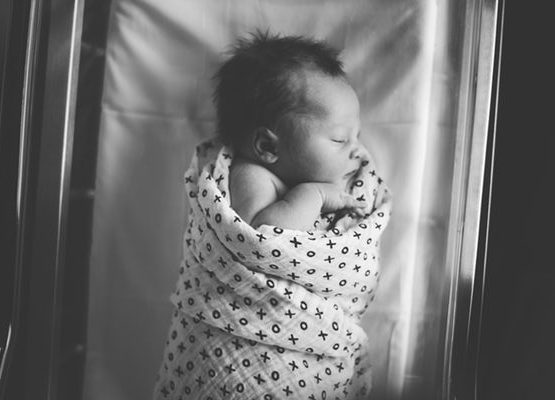Postpartum Psychosis is extremely rare, with an incidence of 1 to 2 women per 1000 births (‘0.2%), but is a psychiatric emergency incident that needs an immediate response. An increased incidence of Postpartum Psychosis (20-30%) has been found in women with a history of Bipolar Disorder. As a more detailed definition, we would say that it is a severe form of depression with obvious delusional ideas, present in the heart rate and explosive 2 to 3 days after birth. (Usually 2 days- 2 weeks after giving birth)
Most women think, “This is not going to happen to me: it’s something that happens to others,” and that’s an understandable reaction. However, if this information is completely ignored, and the expectant mother does not even hear it, she may be even more surprised and find it even harder to understand what is happening to her if she is “offended” by any of these situations.
It is caused by underlying mental illness and the reasons for it are unwanted pregnancy combined with violent childbirth, trapping in an unhappy marriage and fear of a maternal role.
Postpartum Psychosis is a serious but rare mental disorder, the cause of which has not yet been established. Her clinical picture may resemble Bipolar Disorder or Schizophrenia and she needs urgent psychiatric treatment because she poses risks to the life of both the mother and the newborn.
That is to say, the majority of women with postpartum psychosis have a previous psychiatric history, with episodes of bipolar disorder or schizophrenia. The appearance of this “schizo-emotional” disorder occurs with frequent manic-depressive episodes that naturally coexist with periods of normal mental imagery. Symptoms may be present during manic episodes, such as increased self-esteem, decreased need for sleep, increased speech, distracted attention and a subjective sense of ‘galloping’ thoughts, increased activity and psychomotor excitement, excessive and engaging activities can have painful consequences for the individual. In general, there is a picture of confusion in the woman.
A woman with an individual history of some mental illness may be more vulnerable to coping with difficulties, such as a pregnancy or childbirth complication, or problems with her husband, but and more generally in any stressful event, professional, financial, family, etc. The same mentality seems to have a mental disorder in a woman’s family history. In several cases for women, mental disorders may not be perceived and left untreated.
This is the case either because the woman herself chooses not to report the feelings she feels about fearing the results of this report. After all, unfortunately, most health professionals are not specialized in it. However, a specialist in mental health, as well as other specialties such as educated midwives in prenatal and postnatal mental illness, can suspect a mental disorder by listening to the mother. References to women vary. Her complaints may be related to possible tension in her marriage, difficulty or refusal of sexual intercourse, fear of when and if she will return to work, weakness or refusal to care for the newborn, lack of self-confidence, especially after childbirth has changed.

We would say it is a mental illness that over the long term can be cured if treated. She may also complain of intense physical stress and headaches, sleep disorders and lethargy. Other features are hallucinations (visual, olfactory). A mother’s mental health is important not only for herself but also for the fetus. Mothers with mental illness respond inappropriately to their child and maybe aggressive or withdrawn, which adversely affects the child’s mental health and normal development. Mother-infant bonding is also adversely affected. It is crucial here to emphasize that the way a child interacts with others in his later life depends on this relationship.
Both individual and couple psychotherapy is recommended for the treatment of intrapsychic and interpersonal conflicts. Medication is given according to symptoms (antidepressants, anxiolytic, antipsychotic). In any case, you are not alone in asking for help from your surroundings, family, and friends. Both individual and couple psychotherapy is recommended for the treatment of intrapsychic and interpersonal conflicts. You are not alone. You are already a strong woman … that you have been through a lot.
- https://www.app-network.org/wp-content/uploads/2011/11/APP-Newsletter-Jan-2011-Small.pdf
- Brockington, G. e. (2002). Obstetric and gynecological conditions associated with psychiatric disorder. New Oxford Textbook of Psychiatry
- Sharp D, D. K. (1996). The Prevention of Postnatal Depression- he Prevention of Mental Illness in Primary Care.
- Early postpartum symptoms in puerperal psychosis, Heron J, McGuinness M, Blackmore ER, Craddock N, Jones I, BJOG. 2008 Feb;115(3):348-53


